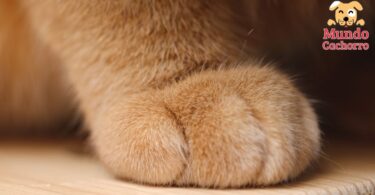Cats are pets that with good care and luck can live up to twenty years.
However, as they get older, you should be aware of the care you should provide. In general, a senior cat is one that is between eight and ten years old.
In fact, from the age of ten onwards is the time when cats begin to show some signs of aging.
That is, this is the time when their health begins to decline and we must pay a little more attention to their care.
At that time, senior cats also begin to have changes within their behavior.
For example, they may have longer periods of sleep and may also be less active and have changes in their appetite.
Recommended reading:
Learn about the nutritional needs of a senior cat.
Tips for caring for a senior cat
- Food. The diet of a senior cat is different from that of other periods of an adult cat’s life.
At this time you should take care that he has a healthy weight that will help him maintain his good health.
The veterinarian will be able to evaluate him and recommend whether he should gain or lose weight. In any case, you can help their digestion by distributing the daily ration in small portions throughout the day and night. - Water. Older cats often become prone to constipation and kidney disease. That is why we must be very attentive to give them more drinking water options within their reach.
A good idea may be to make several water stations available in the places where you usually are. This will entice you to drink more water.
Also by providing more wet food. - Signs of pain. Cats usually hide pain symptoms very well, because it is in their feline nature not to show weakness.
In fact, research reveals that nine out of ten senior cats have evidence of arthritis when special studies such as x-rays are performed. Watch for subtle signs of pain in your cat.
Some drug and supplement treatments may work for arthritis pain.
Acupuncture and some alternative methods such as physiotherapy and laser can also give good results. - Dental health. A cat’s dental health care should begin at an early age. But as cats age, dental disease can become more prevalent.
Many times this type of disease is not obvious and can cause damage to other organs in your body.
For example, infections of the mouth can enter the bloodstream and affect the liver, kidneys and heart. - Exercise. Senior cats often have a decrease in their activity, but to avoid this you can stimulate them to play, climb and stay active.
It is possible to enrich the environment with objects that encourage climbing, hiding or playing.
If their mobility is impaired, try making toys more accessible and within their reach.
Remember that exercise is an important part of a cat’s life to stay healthy.
Image courtesy of https://pixabay.com, all rights reserved.







